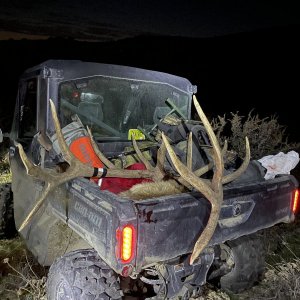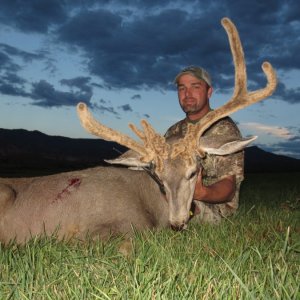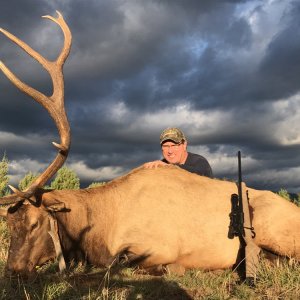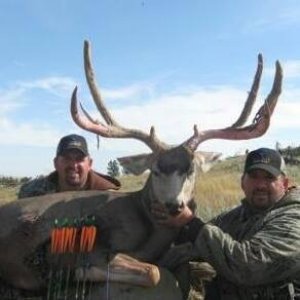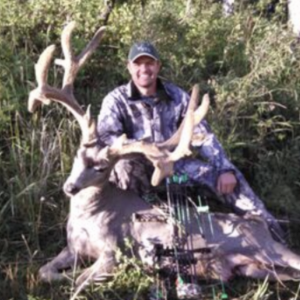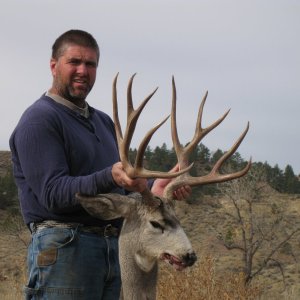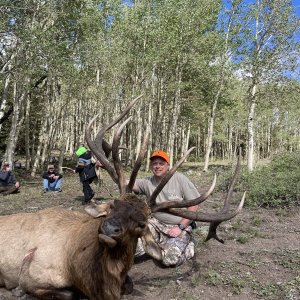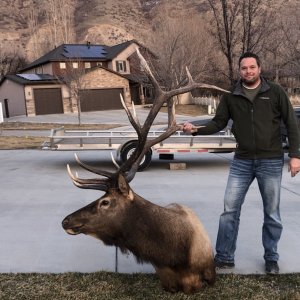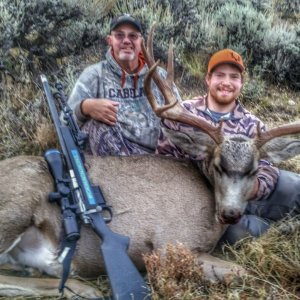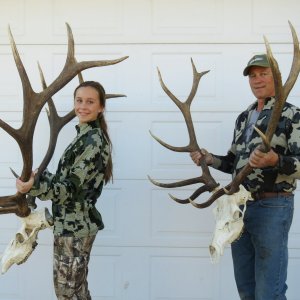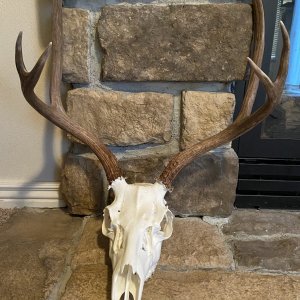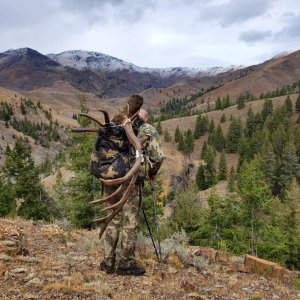Thanks for your Heads-Up Mike.
I am not certain--- but is this the issue that you have presented?
Thanks,
Robb
Dear Wild Sheep Advocates:
Below is a recent article regarding recent legislation in Idaho that could hinder the future of Idaho and the surrounding states ability to manage bighorn sheep. This bill has been pushed by some very misinformed lawmakers.
The bill will be signed into law by Idaho Governor Butch Otter unless YOU call him and let him know that this is bad for wild sheep!
Contact his office at: 208-334-2100
Sincerly,
Neil Thagard
Director of Operations
Bighorn bill expresses lawmakers' frustration with feds
Submitted by Rocky Barker on Tue, 04/14/2009 - 11:12am.
Idaho lawmakers want to send a message to the U.S. Forest Service than they will not stand by as the agency forces the Shirts family off of its grazing allotment in Hells Canyon.
But they appear to be sending a message that will have as much success as their early 1990s message to the federal government that they don't want wolves.
The House Resources and Conservation committee voted 18-3 Monday to send a bill to the floor that would require the Idaho Department of Fish and Game to move or kill any wild bighorn sheep that walks on to public land where domestic sheep are allowed to graze. Under the law, no domestic sheep need to be present for the requirement to be in place.
The bill comes in response to the U.S. Forest Service?s rewriting of its Payette National Forest Plan, which as proposed, would close down grazing in part of Hells Canyon where bighorn sheep populations have dramatically dropped. The Forest Service, under pressure from the Nez Perce tribe, national environmental groups and bighorn hunting groups, would keep Ron Shirts of Weiser from returning sheep to the area he and his family have grazed for years.
Its scientists say that bighorn sheep die when they come in contact with domestic sheep. This problem has long been known but Marie Bulgin, a past president of the Wool Growers Association and director of the University of Idaho's Caine Veterinary Teaching Center, says while the disease is transmitted between the wild and domestic sheep in pens that there's no evidence of that taking place in the wild.
This difference in scientific opinion between Idaho and other wildlife and land management agencies is at the heart of the frustration that sheep ranchers hold. The Forest Service has final say on managing grazing allotments and its scientific view will prevail in the end along with its regulations that require it to manage for viable wildlife populations throughout its forests.
Lawmakers also are angry that Payette?s decision, triggered by a federal judge?s decision, breaks a 1997 agreement reached between ranchers, the Forest Service, bighorn hunters and Idaho Fish and Game, which said those pushing bighorn transplants would accept the risk of disease transmission and not force the ranchers to quit grazing.
Several efforts have been made to have the Shirts paid to retire their grazing allotment or to find them alternative grazing. Those effort have been unsuccessful and for Idaho lawmakers the issue is private property rights. A rancher should not be forced to take a buy-out, they argue passionately.
Lawmakers took their frustration out on the Idaho Conservation League?s John Robison Monday, who opposed the legislation. Robison, who is a member of an advisory committee organized by Gov. Butch Otter to seek a collaborative solution to keeping bighorns and domestic sheep a part, was portrayed as an opponent to grazing on public lands, which he denied.
The conservation league had nothing to do with the 1997 agreement. It was not involved in the lawsuits that are forcing the Payette to rewrite it plans.
Today Robison will be joining with Owyhee County ranchers and private property rights advocates in celebrating the Owyhee Initiative law signed by President Barack Obama that protects wilderness and wild rivers while keeping ranchers there whole.
In the early 1990s some of the same people on the House committee succeeded in banning Fish and Game from having anything to do with wolf management in the state. The Idaho Legislature?s intransigence didn't stop the federal government from transplanting wolves into the state in 1995 and putting the Nez Perce tribe in charge of their management.
If wild bighorn sheep populations keep dropping, there may be a call for protecting them under the federal Endangered Species Act. That's why the state needs a collaborative solution that meets the needs of both ranchers and bighorn sheep, Robison said.
But lawmakers are pinning their hopes on the message they send with this bill.
?I don't know that the Forest Service is going to give this consideration,? said Republican Sen. Jeff Siddoway, a sheep rancher himself. ?I hope they do.?
Wild Sheep Foundation
Neil Thagard
Director of Operations
720 Allen Avenue
Cody, WY 82414
[email protected] www.wildsheepfoundation.org
307-527-6261 phone 307-527-7117 fax

